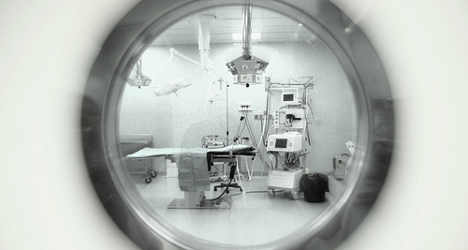Over 150 angry medics gathered for a sit-in outside the economy ministry during the four-hour nationwide strike, which forced hospitals, health centres and public clinics to cancel 500,000 check-ups and 30,000 non-emergency procedures.
Unions say a €1 billion cut in the 2013 health budget has hit hard, and a freeze on doctor wages since 2009, when the economic crisis first bit, is punishing them.
"In 10 years or so we risk finding ourselves with a dual system where the rich go to private clinics and the poor continue to use public services that are increasingly inefficient," Massimo Cozza, the president of the medical branch of the country's biggest trade union, CGIL, told AFP.
The lack of funds has seen a sharp drop in the number of doctors hired, with only 10 taken on for every 100 who retire, said Riccardo Cassi, head of the CIMO medics' trade union.
"This means not only do we not have enough doctors to cope with the work, but also thousands of young doctors have become slaves to short-term contracts and older doctors are forced to take on tasks once given to the younger ones, such as night shifts," Cassi said.
Hospitals and health centres are being forced to cut spending on essentials such as equipment and maintenance, he said.
Italy imposed deep spending cuts in 2011 as the eurozone debt crisis circled, and Prime Minister Enrico Letta's government is planning to resume the cuts this year in a bid to reduce taxes and boost growth.
Cassi said that while the health service may be in dire straits, privatization was not an option.
"Private clinics only perform highly profitable services and will never be interested in carrying out things such as assistance to the elderly," he said.



 Please whitelist us to continue reading.
Please whitelist us to continue reading.
Member comments